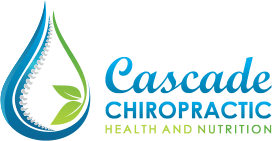I don’t know a single person who has a toe or nail fungus that isn’t embarrassed by it. But did you know it can also affect your skin and, more importantly, your gut? It’s true, the most common starting point for a fungal infection is the gut, also known as the digestive system.
The family of pathogens that fungus falls into is commonly known as the Fungus, Mold, Yeast Family. These organisms like to set up housekeeping in moist, warm areas so think sinus, ears, vaginal, armpit, under the breast, mouth and in hot shoes.
Most of us at one time or another thought that we needed to eliminate all bacteria, fungus, mold, and yeast from our environment, however that would not be a good idea. Antibiotic resistant microbes are proof of that with the possibility of C. Diff resulting. C. Diff is a very dangerous life-threatening gut infection often the result of the destruction of too many resident microbes.
There are several billion gut microbes that we actually need in our bodies to help us digest our food, make enzymes and hormones, and more. Without these commensal or co-habitating organisms we could be less than healthy, in fact, some say we could not exist! There are 10x as many bacterial cells in the body as human cells. These cells protect us against the overgrowth of unwanted pathogens so we need to take care of them, feed them, and try NOT to kill them off.
If there are so many of them, how do they get out of balance? Well, WE do that to them sadly and here are some ways that can happen.
- Antibiotics: Killing off most of the good guys and only a few of the more resistant bad guys almost always leaves us with an imbalance and the impending yeast infection, thrush, or recurrent initial infection. Studies show it can take 3-12 months to restore gut flora to some semblance of normal.
- Sugar intake/ Type 2 Diabetes: Sugar feeds yeast, if you have ever made bread, the activating factors are warm water and sugar. Once combined the yeast takes off and multiplies like crazy.
- Prescription Drugs: Many times Rx drugs cannot be avoided, however there is nearly always a consequence. The gut lining replaces itself every three to five days, this can be interfered with by many prescriptions as they have an inflammatory action on the fragile cells, thus resulting in an intestinal lining that becomes hyper-permeable. You may be familiar with this condition as Leaky Gut. The inflammatory state disrupts the mucus lining of the gut and leaves the good bacteria no place to live.
- Stress: We all have some level of stress, sometimes good and sometimes bad. Being excited about an upcoming event is good stress, but there are many types of bad stress. The challenge is that we produce cortisol, an adrenal hormone, as a result of stress, and cortisol slows the repair of the intestinal lining, also leading to damage and inflammation.
- Sodas, sugary drinks and alcohol: Sugar in this form is often not considered a contributor to a fungal or pathogenic overgrowth. However, fruit juice, excess fruit consumption, sodas, and alcohol all turn into sugar. So, much the same way as a diabetic suffers from excess blood sugar so does the person who consumes too much sugar in its natural state.
Let’s explore for a minute how we got our initial gut flora. When you were born, if you were fortunate to have a non-cesarean birth, you were covered in good microbes that your body absorbed and incorporated into your immune system. If you were breast fed this sharing of beneficial microbes continued as the anti-bodies in mothers milk were passed on to you. If you were fed good, whole, unprocessed food…. and on and on.
For some of us, this was not the case; our mother was raised in an allopathic model, where C-sections, antibiotics, and formula were the norm, or were unavoidable. If that is the case don’t dismay, it simply means you need to up your game if you suffer from stealth pathogens such as fungus, mold or yeast.
There is good news!! There are things we can incorporate into our daily routine that will help us on our path:
- Eat more garlic, ginger, and onion
- Eat whole food, unprocessed, not from a box
- Drink water and herbal teas
- Wear breathable shoes if you have nail fungus
- Eliminate wheat and dairy when warranted
If you’re already being proactive and feel more support is needed, there are more advanced courses of action you can take:
- A stealth pathogen protocol (supervised by Dr. Virginia)
- Topical herbal tinctures
- A gut restoration protocol (supervised by Dr. Virginia)
- An elimination diet or weight loss program to balance blood sugar
Fungal infections often get misdiagnosed and are challenging to eliminate. Complicating conditions can include SIBO (small intestine bacterial overgrowth) , SIFO (small intestine fungal overgrowth), gas, bloating, GERD, and reflux, in which case many allopathic approaches might be an over the counter or prescription antacid. This approach is rarely the best option and in fact is contrary to alleviating the underlying cause of the fungal infection wherever it resides. This is because the pH balance of the gut should in fact be acidic and not alkaline. An acid environment helps to kill the bad bacteria also.
There are so many ways to compromise our health, and so many ways to improve it. As informed consumers we get to choose! Being committed to a healthier lifestyle is something you can do to improve your overall health, do it for you, do it NOW!
CONTACT:
Dr. Virginia S. Irby D.C.,DABCO, ACN
Cascade Chiropractic
2371 Iron Point Rd. Ste. 130
Folsom, CA 95630
916-844-2800
